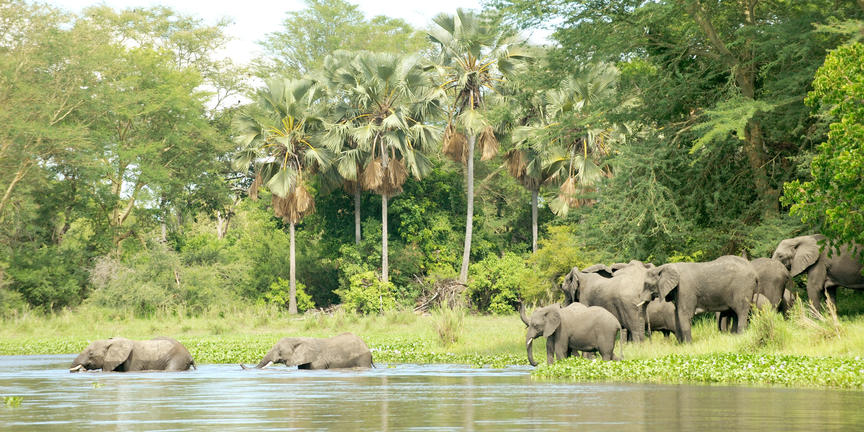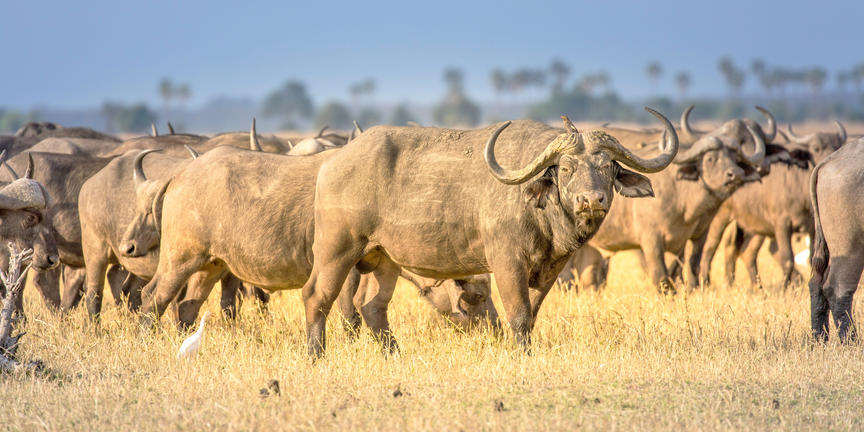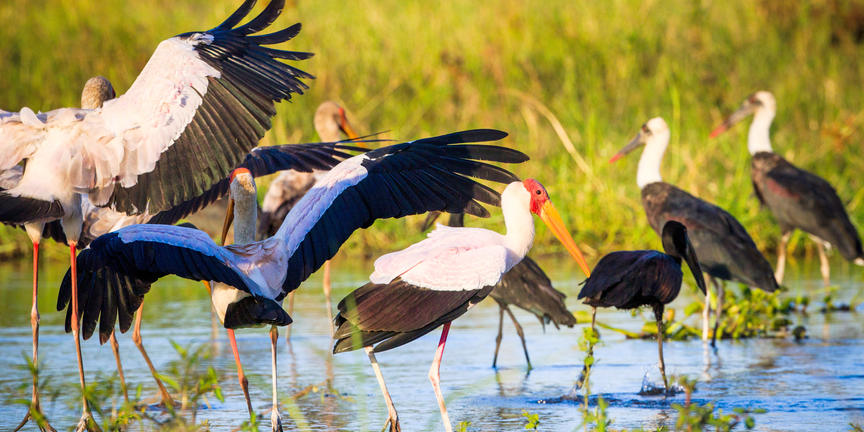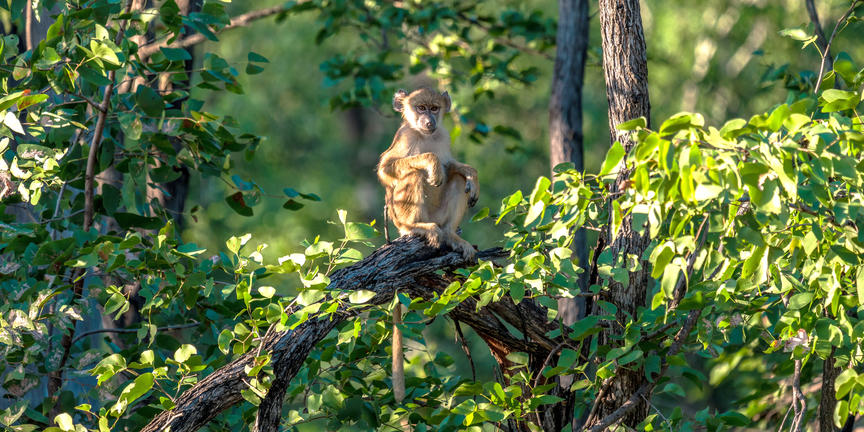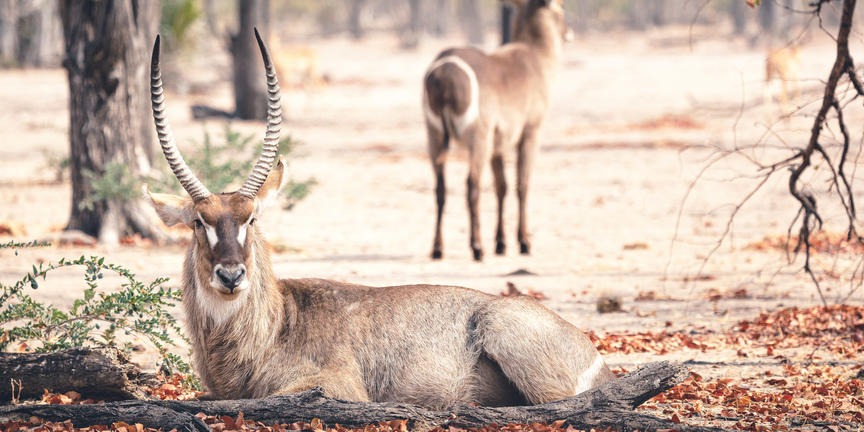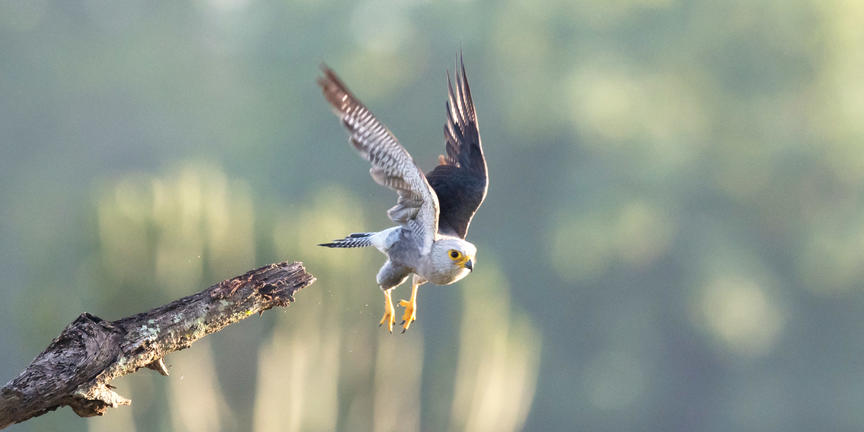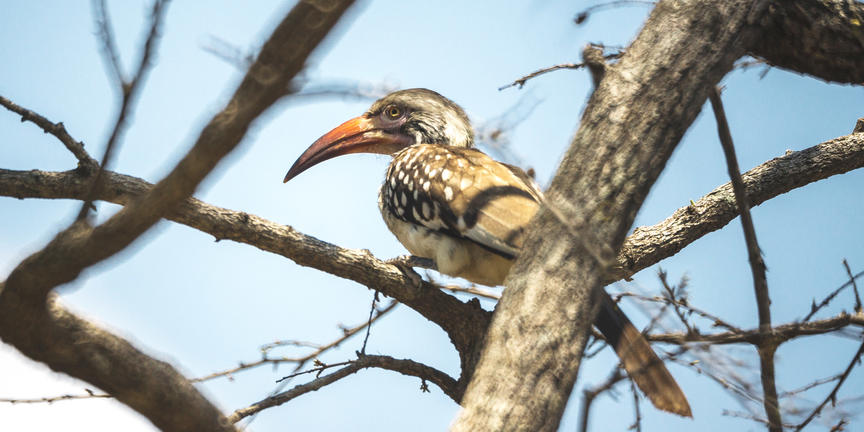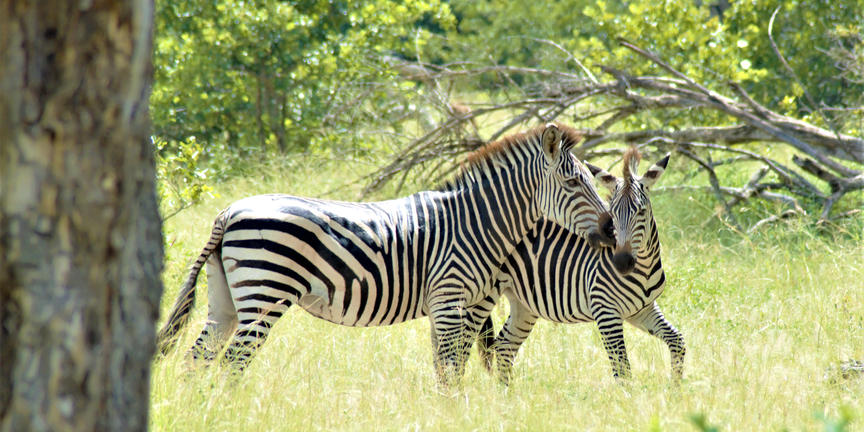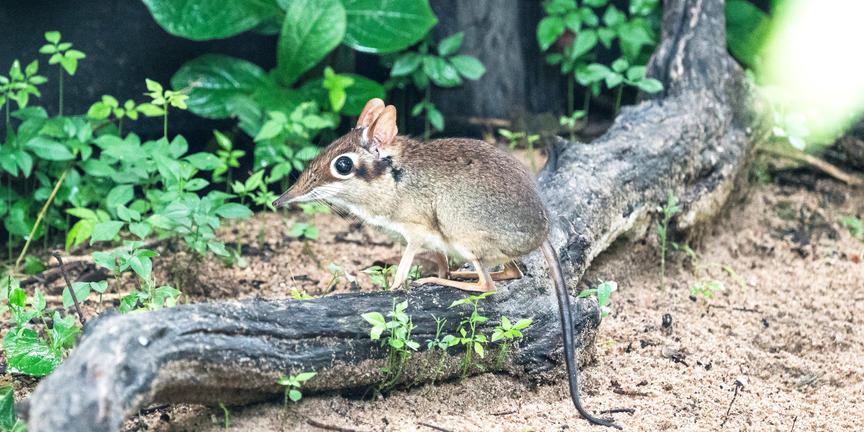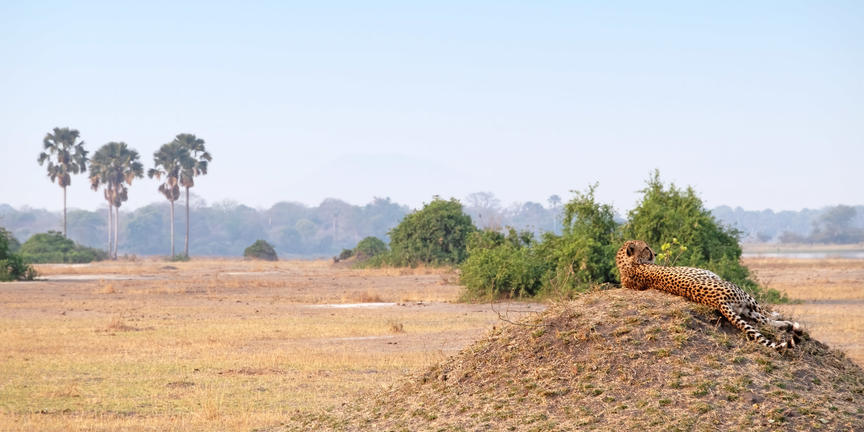The Liwonde National Park lies south of Lake Malawi - lush and wild with the best wildife safaris on offer in Malawi. This is largely because of the Shire River, (pronounced Shiree) which drains Lake Malawi, forms its western boundary and acts as a magnet for wildlife. Broad and languid, it is alternatively fringed by riverine forest, Borassus palms and wide floodplains, stretching to 3km wide in parts. Liwonde park offers a lush diversity of habitats. Relatively dry mopane woodlands cover the eastern half of the park - interspersed with candelabra trees - while patches of miombo woodland occur in the south. Palm savanna and numerous baobabs line the extensive floodplains of the Shire River.
Arriving by river boat is the best way to see the beauty of this magnificent park. With one of the densest populations of hippo in Africa, and a riverbank heavy with huge sun bathing crocodiles, the wide and scenic Shire river is a vital life source for the park's animals in the dry season. The grass-covered floodplains attract large breeding herds of elephant, magnificent and rare sable antelope as well as impala, reedbuck, waterbuck & warthog amongst others. The park is also home to lion, the elusive leopard as well as buffalo, kudu and impala which inhabit the woodlands beyond the floodplain. Liwonde Park has a smaller sanctuary within which is a breeding project with a small number of black rhino.
Birdlife is prolific in Liwonde with over 380 recorded species offering probably the best year-round birding in Southern Africa and 'specials' include the rare Pel's fishing owl, white-backed night heron, Böhm's bee-eater and Lilian's lovebird.
Safaris are conducted in open vehicles (on day and night drives), by foot and by boat. There is also an opportunity to track black rhino on foot which is an exciting addition. We recommend combining a couple of nights on safari in Liwonde with another safari destination such as the South Luangwa National Park in Zambia, Majete Game Reserve also in the south or the contrasting Nyika plateau in the north.
